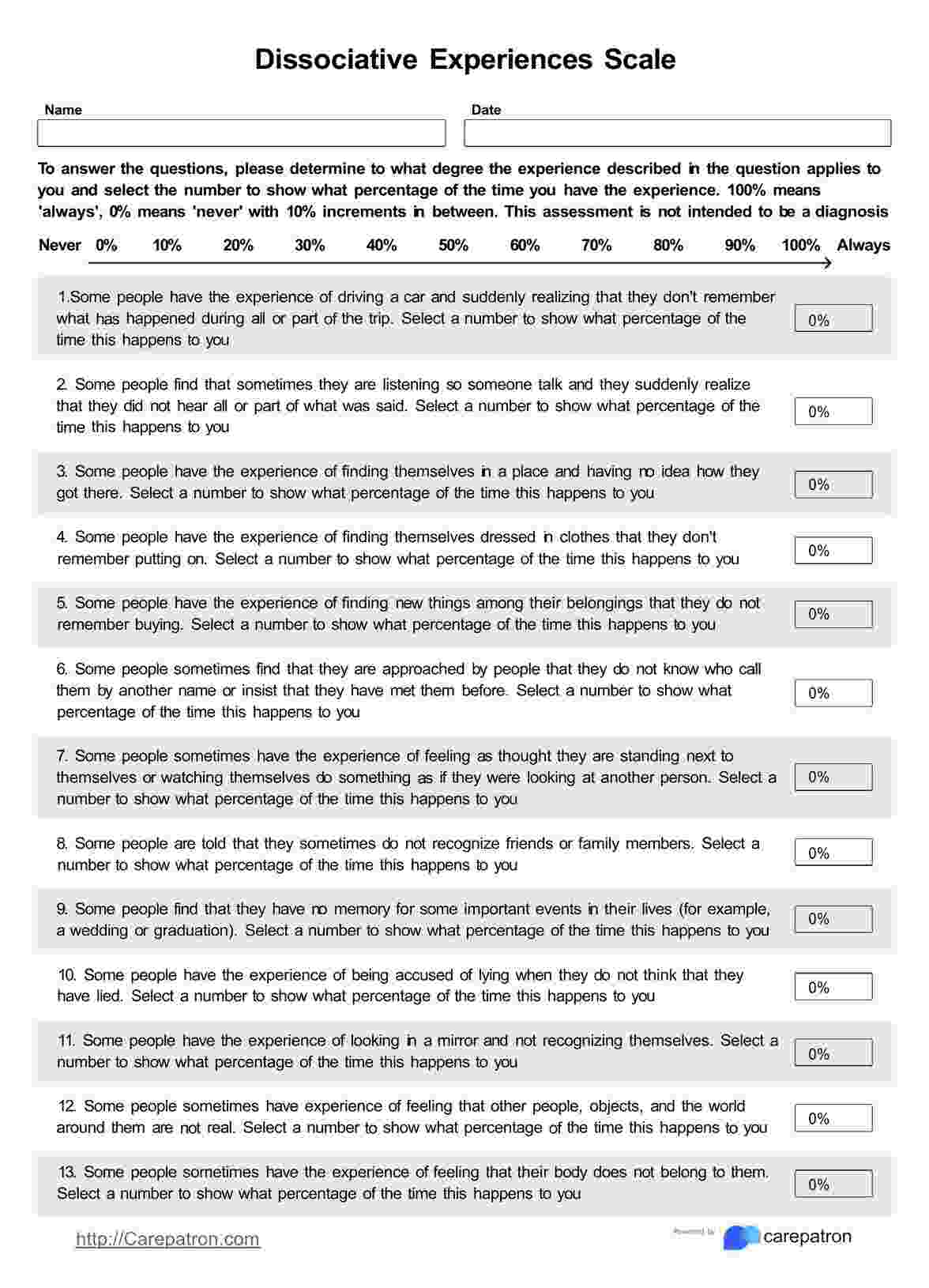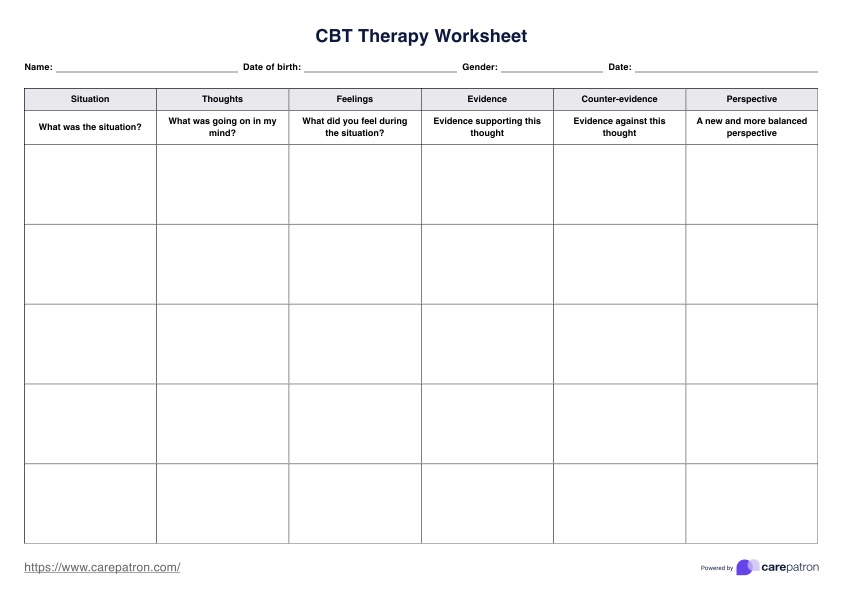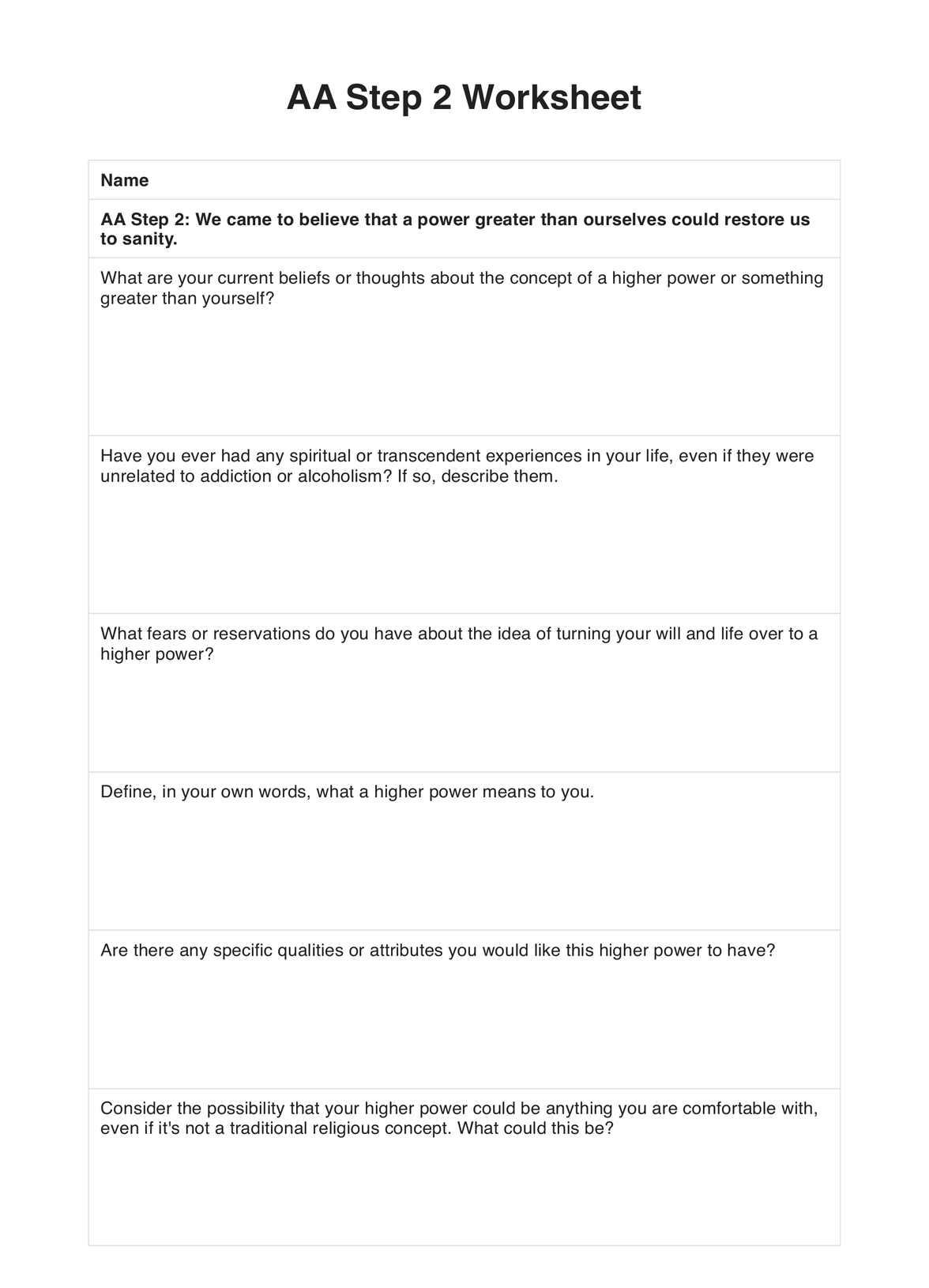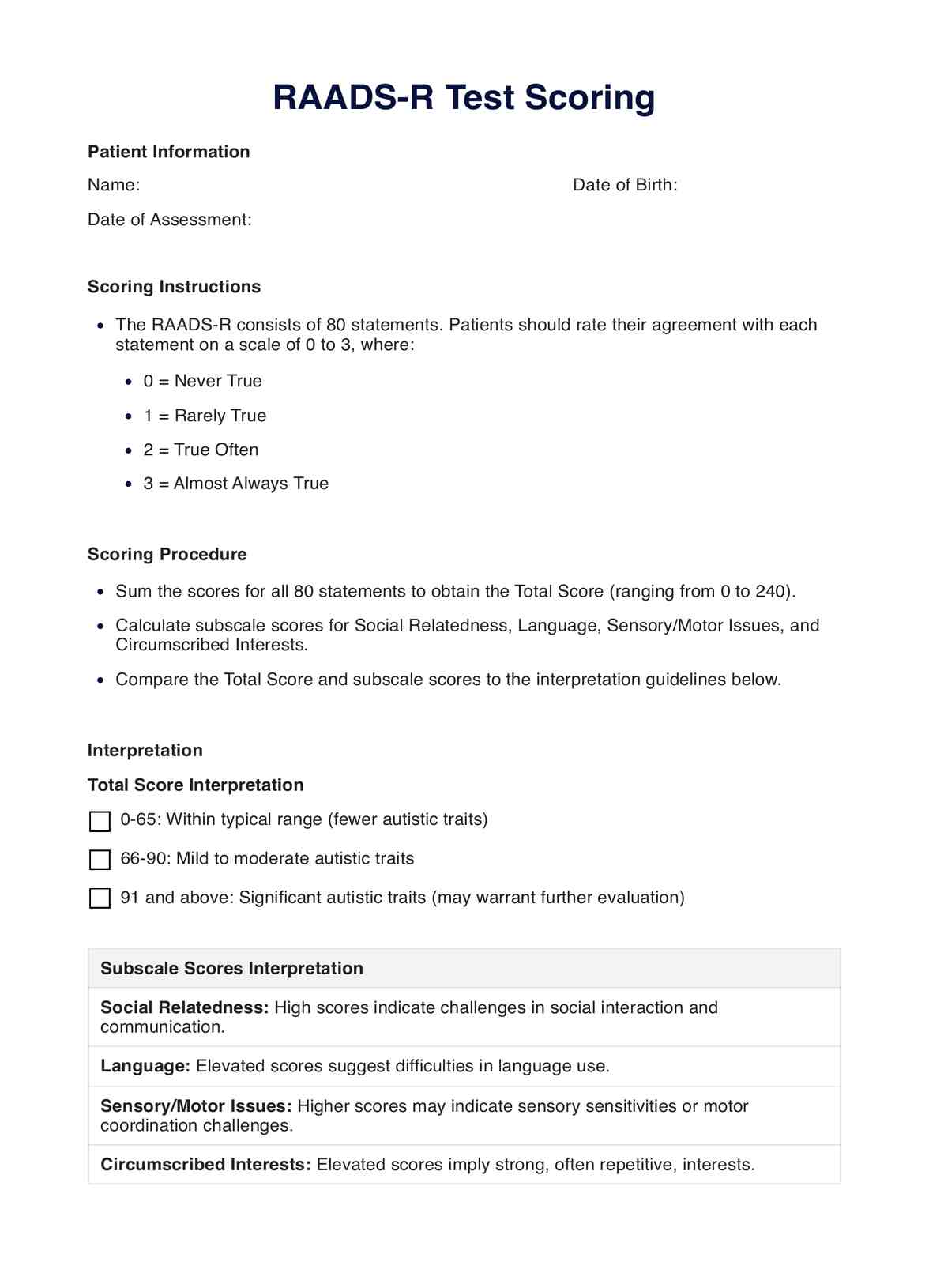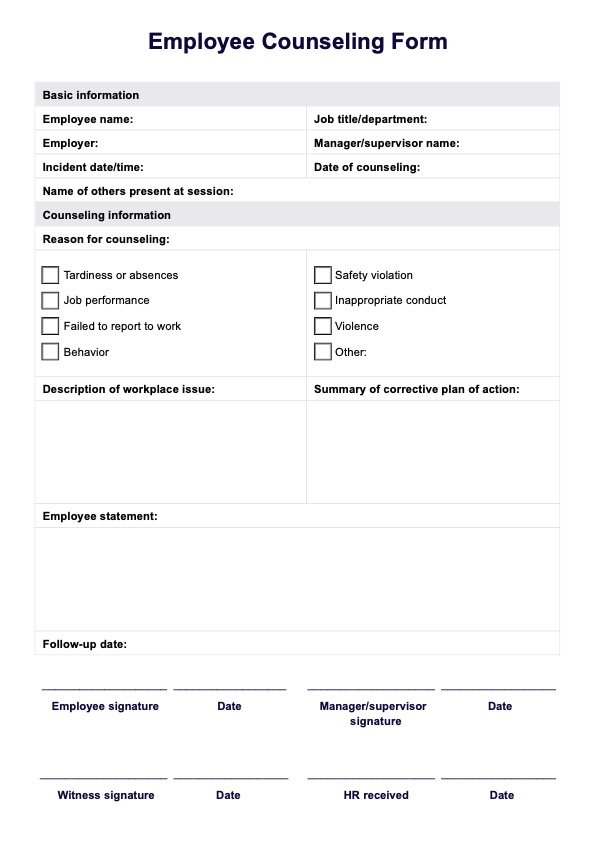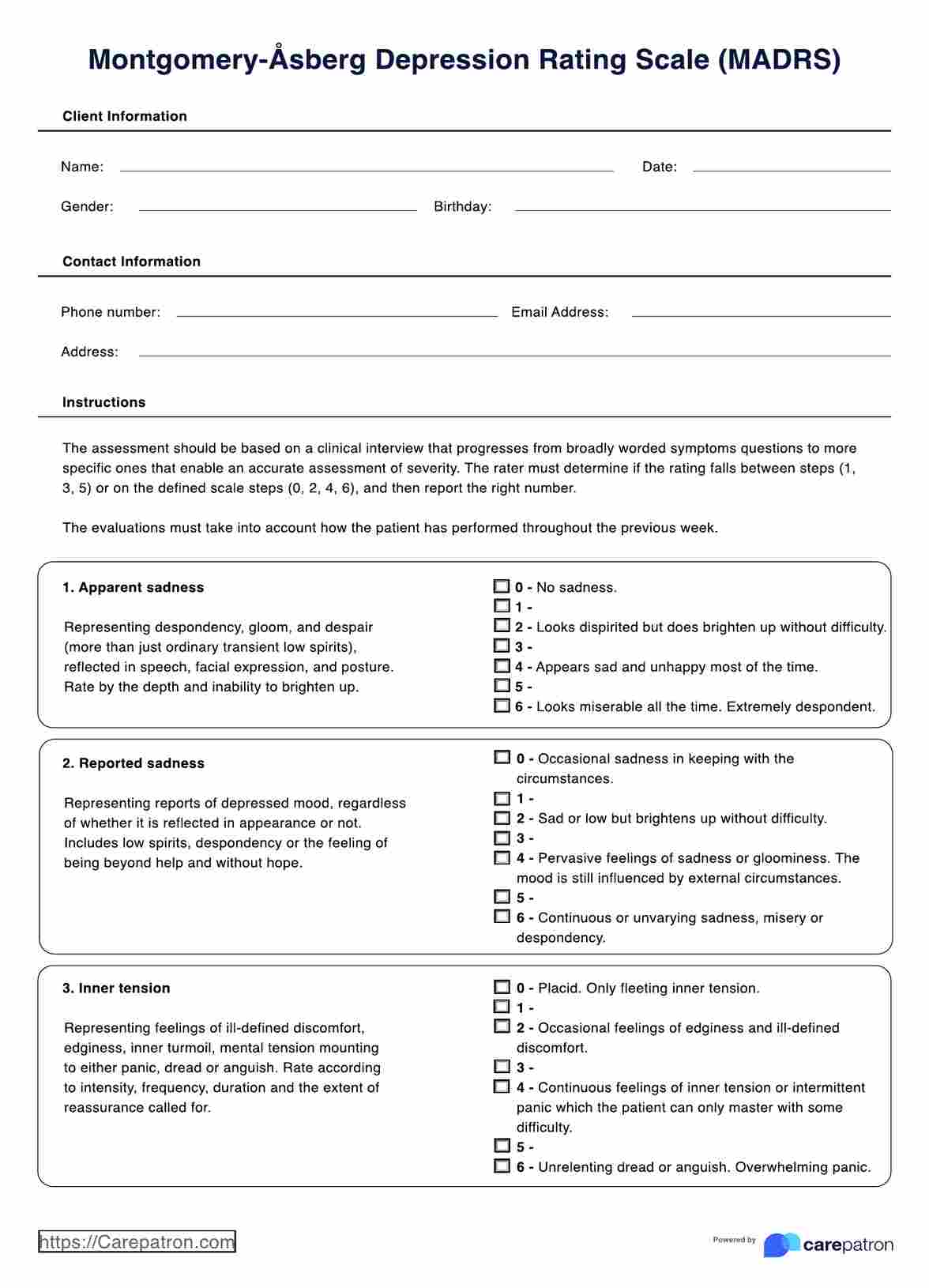Impulsive Behavior Scale (UPPS)
Unlock comprehensive insights into impulsivity with UPPS Impulsive Behavior Scales. Ideal for professionals in psychology, therapy, and research settings.


What is the Impulsive Behavior Scale (UPPS)?
The UPPS Impulsive Behavior Scale is a refined psychometric instrument that mental health professionals use to evaluate impulsivity — a multifaceted behavioral attribute often linked to various psychological conditions. Some of these include Attention Deficit Hyperactivity Disorder (ADHD), Borderline Personality Disorder, and substance abuse disorders.
Originating from a comprehensive factor analysis of existing impulsivity scales, this 59-item measure taps into five critical domains contributing to impulsive behaviors. Each participant responds to items using a 4-point Likert scale ranging from "Agree Strongly" to "Disagree Strongly."
The subscales include:
- Positive Urgency
- Negative Urgency
- Lack of Premeditation
- Lack of Perseverance, and
- Sensation Seeking.
Positive and Negative Urgency capture the inclination to act impulsively due to extreme positive or negative emotions. Lack of Premeditation and Lack of Perseverance measure the tendency to act rashly without sufficient forethought and the propensity not to complete tasks, respectively. Finally, sensation-seeking assesses the drive to pursue novel and thrilling experiences.
By illuminating these distinct facets of impulsive personality traits, the UPPS scale equips professionals in clinical and research settings with a comprehensive understanding of an individual's impulsive tendencies. This understanding can effectively guide assessing, diagnosing, and managing impulsivity-related issues.
Research supports the broad applicability of the UPPS scale, attesting to its validity across different age groups and sexes. While some differences were noted across these categories, the scale's overall effectiveness remains intact, making it a robust tool for examining impulsive personality across the adult lifespan.
Understanding and managing impulsive behaviors are crucial for effective therapy and improved mental health outcomes. Explore our Impulsive Behavior Scales and watch the explainer video below to learn more.
Impulsive Behavior Scale (UPPS) Template
Impulsive Behavior Scale (UPPS) Example
How does it work?
The UPPS Impulsive Behavior Scale is a robust self-report tool designed to delve into the complexities of impulsivity. Comprising 59 items across five subscales, it captures distinct facets of impulsivity. Here's a brief look at how it works:
Step 1: Understand the UPPS Impulsive Behavior Scale
Each subscale mirrors a unique aspect of impulsivity. Familiarity with these facets allows for a nuanced understanding of the statements in the scale.
Step 2: Answer the Questions
Participants rate their agreement with each statement on a scale from 1 (agree strongly) to 4 (disagree strongly). Honest self-reflection is crucial for accurate results.
Step 3: Score the UPPS Impulsive Behavior Scale
Scoring involves calculating separate scores for each section. These scores collectively reveal a comprehensive view of an individual's impulsive tendencies.
The UPPS scale has proven effective in various contexts, such as substance abuse, gambling, and ADHD. It assists in identifying the reasons behind impulsive behavior, enabling tailored treatment strategies.
Validity and Interpretation of the UPPS Impulsive Behavior Scale
Numerous studies affirm the validity of the UPPS scale. When interpreting scores, raw and mean scores for each subscale are considered, and scores are converted into percentile ranks based on a reference sample, offering a comparative measure of impulsivity.
When would you use this Template?
The UPPS Impulsive Behavior Scale is used in various professional contexts to understand and manage impulsive behaviors. Here are some of the primary instances when you might use this tool:
- Mental Health Professionals: Psychologists, psychiatrists, therapists, and social workers use the UPPS scale in clinical practice. It's beneficial for those working with patients diagnosed with psychological disorders that exhibit high levels of impulsivity, such as ADHD, BPD, and various substance use disorders. The tool aids in gaining a comprehensive understanding of patients' impulsive tendencies, helping develop personalized, effective treatment plans.
- Research: Researchers in psychology and behavioral sciences often use the UPPS scale. It's instrumental in studying impulsivity in different populations and investigating its correlation with various psychological disorders, behavioral problems, and life outcomes.
- Educational Institutions: School psychologists or guidance counselors may use the UPPS scale to assess students exhibiting signs of impulsive behavior, helping them identify suitable interventions or support.
- Workplace Settings: Human resources professionals or organizational psychologists might use the UPPS scale to better understand employees' impulsive traits. Such insights could benefit team composition, leadership development, and conflict resolution.
- Correctional Settings: In correctional or rehabilitation centers, the UPPS scale could aid in assessing inmates' or residents' impulsive tendencies, supporting the design of behavior management programs or therapeutic interventions.
The UPPS Impulsive Behavior Scale is a valuable tool, especially when a comprehensive understanding of an individual's impulsive behaviors is critical for diagnosis, treatment planning, or research.
Benefits of the UPPS Impulsive Behavior Scale
The UPPS Impulsive Behavior Scale offers a range of benefits to various professional fields, from mental health to education to corporate settings. Here are some key advantages of using Carepatron’s Free Impulsive Behavior Scale:
Comprehensive Understanding of Impulsivity
A significant strength of the UPPS Impulsive Behavior Scale lies in its ability to dissect impulsivity into distinct components: Urgency, (Lack of) Premeditation, (Lack of) Perseverance, and Sensation Seeking. This comprehensive approach allows for a deeper understanding of impulsive behaviors, providing a detailed picture of an individual's impulsivity patterns.
Wide Applicability Across Various Fields
The UPPS scale is versatile and can be utilized in numerous professional contexts. These include mental health settings, educational institutions, research environments, human resources departments, and correctional facilities. Its universal design and flexibility make it a valuable tool for any professional assessing impulsive tendencies.
Informed Treatment Planning
In the clinical world, the detailed insights provided by the UPPS scale are instrumental in devising effective treatment strategies. By understanding the specific facets of a patient's impulsivity, clinicians can tailor their treatment approaches to address each component effectively, thus potentially improving treatment outcomes.
Free Accessibility
A key advantage of the UPPS Impulsive Behavior Scale is its accessibility. As a free Impulsive Behavior Scale, it can be easily accessed and downloaded from multiple online platforms, making it readily available anywhere.
Evidence-Based Tool
The UPPS scale has been extensively researched and validated, providing an evidence-based method for assessing impulsive behavior. This validation supports the scale's reliability and effectiveness and gives professionals confidence in its use.
By offering a multi-dimensional perspective on impulsive behaviors, our Free Impulsive Behavior Scale is a valuable, accessible, and scientifically-grounded tool, contributing significantly to the effective understanding and management of impulsivity.
Research and Evidence
The UPPS Impulsive Behavior Scale, first introduced in the early 2000s by Whiteside and Lynam, has established itself as an integral tool in psychological assessment, particularly in understanding and measuring impulsivity. An extensive body of research and empirical evidence demonstrating this scale's effectiveness and applicability across various populations underpins its robust and reliable construct.
Since its creation, the UPPS Impulsive Behavior Scale has undergone various revisions and modifications to enhance its precision and user-friendliness. One significant update occurred in 2007, when Cyders et al. added a fifth dimension, Positive Urgency, to the scale, further refining its ability to dissect the multifaceted nature of impulsivity. This updated version, the UPPS-P Impulsive Behavior Scale, provides an even more nuanced view of impulsive behaviors.
The strength and reliability of the UPPS scale have been repeatedly confirmed through numerous studies and research investigations. These studies have consistently demonstrated the scale's validity - that it indeed measures what it purports to measure—and its reliability—the consistency of its results over time. For instance, studies have shown a strong correlation between the scores derived from the UPPS scale and behavioral manifestations of impulsivity, confirming its external validity.
The UPPS Impulsive Behavior Scale has shown remarkable versatility, being successfully utilized across different age groups, cultures, and clinical populations. It has been effectively employed in various research and clinical contexts, such as studying addiction, personality disorders, and attention deficit hyperactivity disorder (ADHD), further cementing its utility and credibility.
The scale's proven consistency, backed by scientific research and its ability to provide a comprehensive understanding of impulsivity, renders the UPPS Impulsive Behavior Scale a cornerstone in research and clinical assessment of impulsive behaviors. Its continued use and endorsement in scientific literature speak volumes about its contribution to the field.
Commonly asked questions
Mental health professionals, researchers, and human resource professionals all use the UPPS Impulsive Behavior Scale.
The UPPS Impulsive Behavior Scale is used when a comprehensive understanding of an individual's impulsive behaviors is required for diagnosis, treatment planning, or research purposes.
The UPPS Impulsive Behavior Scale is a self-report tool where individuals respond to a series of statements relating to impulsive attitudes and behaviors. The summed scores provide insight into different aspects of the individual's impulsive personality traits.

.jpg)
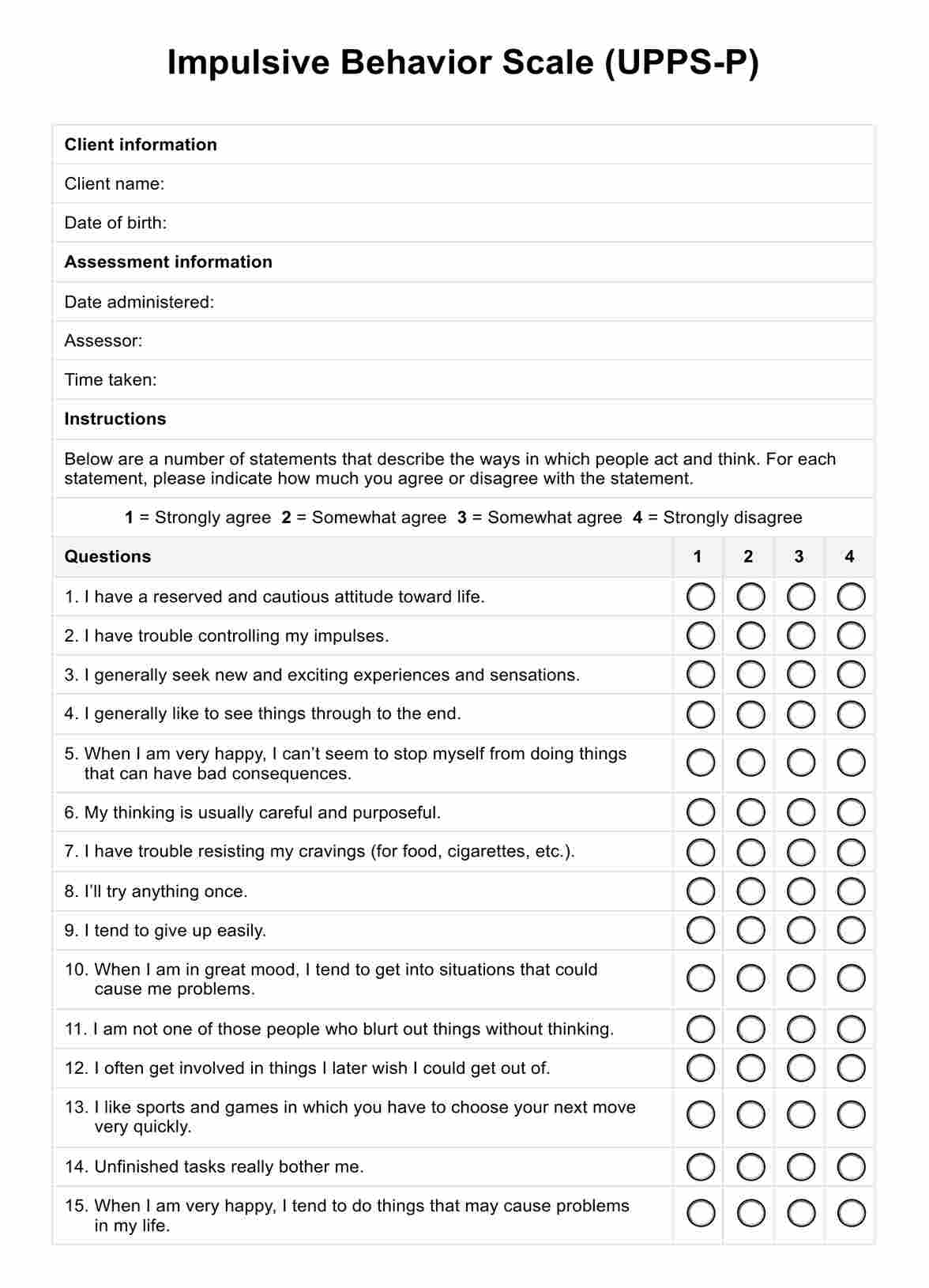
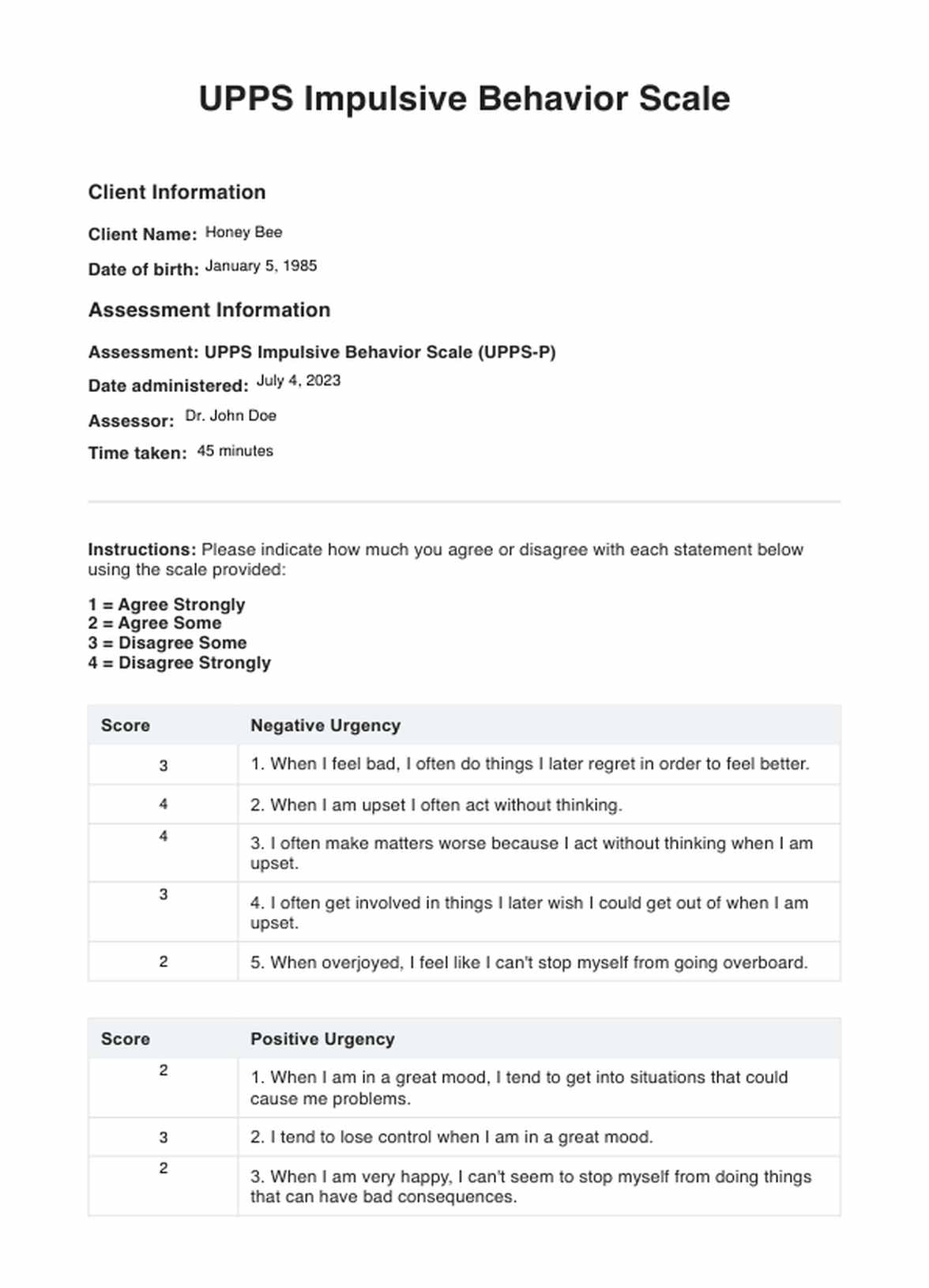















-template.jpg)





















































































